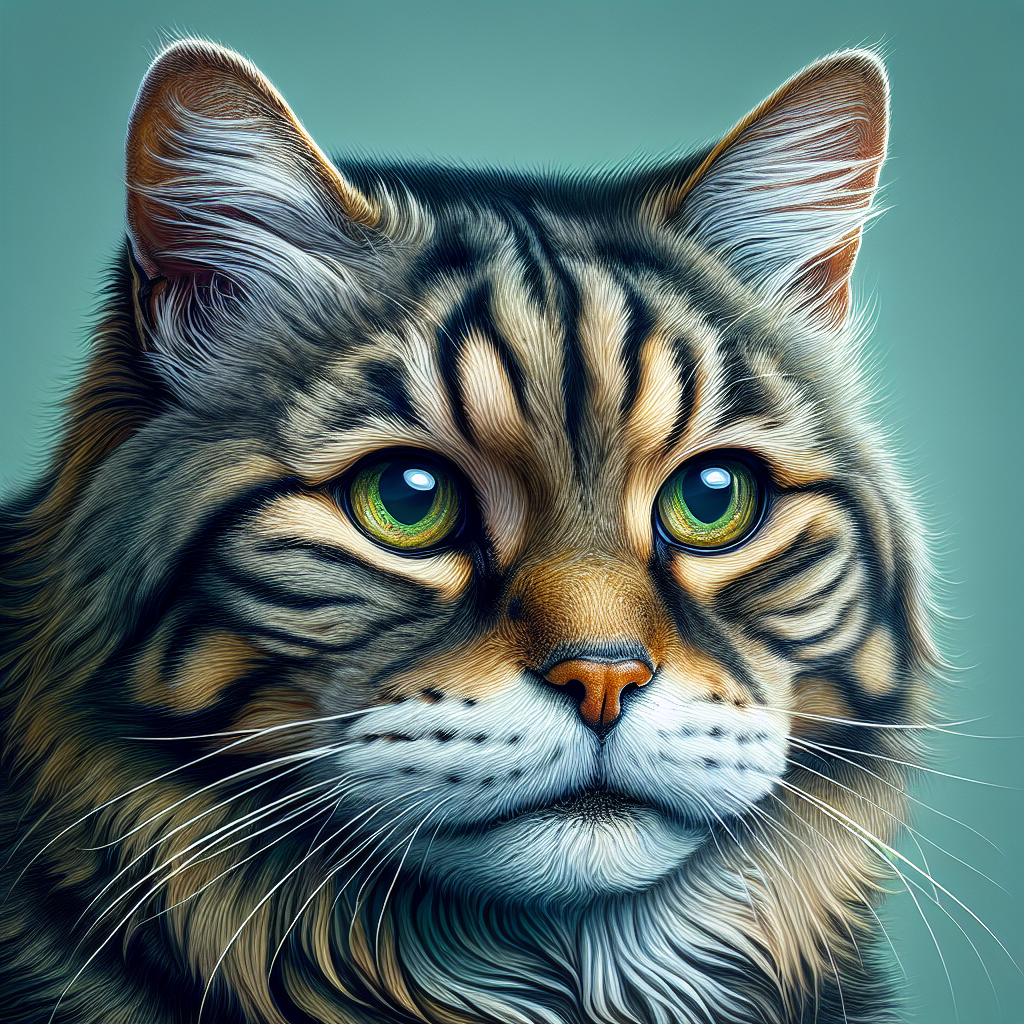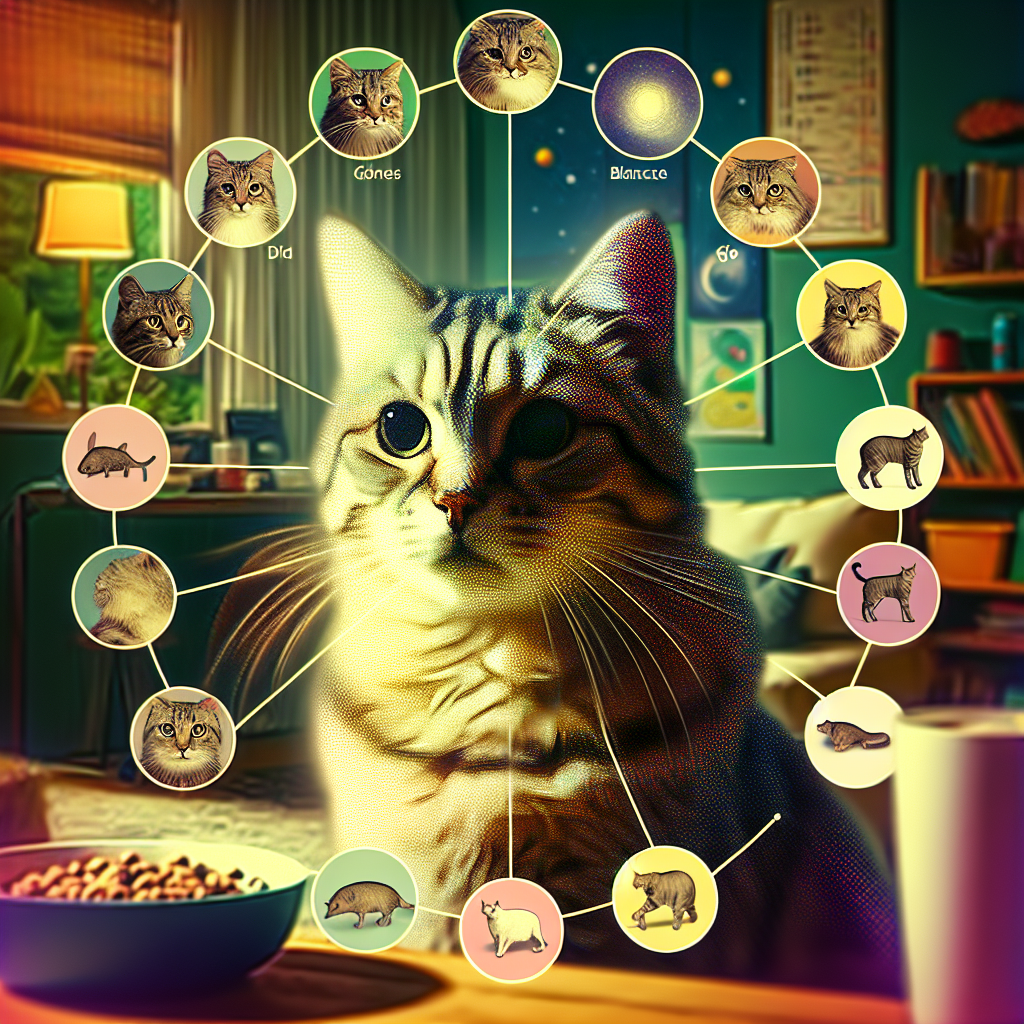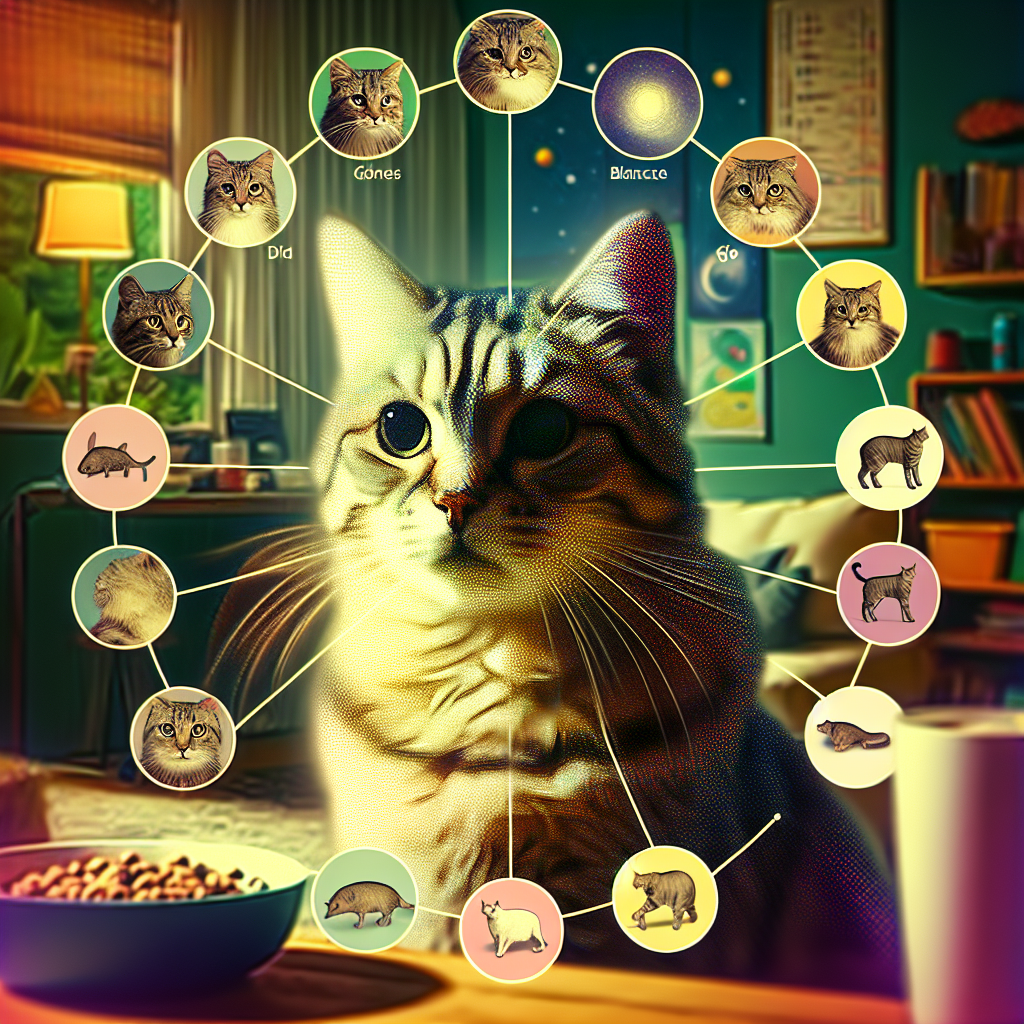Did you know that tabby cats can live for an average of 12 to 16 years? In this article, we will explore the factors that contribute to the lifespan of a tabby cat, including genetics, diet, and overall health. By understanding these key elements, you can provide the best care for your furry friend and ensure a long and happy life together. So, let’s delve into the fascinating world of tabby cats and uncover the secrets behind their lifespan.
Understanding the Lifespan of a Tabby Cat
Tabby cats, known for their distinctive coat patterns, are beloved pets worldwide. As a cat owner, understanding the factors that affect their lifespan is crucial in providing them with a long and fulfilling life. In this comprehensive article, we will delve into various aspects that contribute to the lifespan of tabby cats, such as genetics, diet and nutrition, physical activity, healthcare, common health issues, signs of aging, and ways to improve their lifespan.
Factors Affecting Lifespan
Breed
While tabby cat is not a specific breed itself, but rather a coat pattern that can appear in various breeds, different breeds do have varying lifespans. Some breeds tend to be more prone to certain health conditions, which may affect their longevity. It’s important to note that factors such as genetics, diet, and overall lifestyle also play a significant role in determining a tabby cat’s lifespan.
Gender
Gender can also influence a tabby cat’s lifespan. In general, female cats tend to live longer than male cats. This may be attributed to the fact that male cats often roam more, increasing their exposure to outdoor risks and potential accidents.
Environmental Factors
The environment in which a tabby cat lives can greatly impact their lifespan. Cats who live primarily indoors tend to have longer lifespans compared to those with access to the outdoors. Indoor cats are protected from dangers such as predators, traffic accidents, exposure to diseases, and injuries.
Mental and Emotional Well-being
The mental and emotional well-being of a tabby cat is also crucial in determining their lifespan. Cats that experience chronic stress, loneliness, or boredom may be more susceptible to various health issues, leading to a shorter lifespan. Providing a stimulating and enriching environment, regular social interaction, and playtime can significantly contribute to their overall well-being.

Average Lifespan
General Lifespan Range
On average, tabby cats have a lifespan of 12 to 18 years. However, with proper care and a healthy lifestyle, some tabby cats can even live into their early twenties. It’s important to note that individual cats may deviate from the average lifespan due to various factors.
Influence of Indoor vs. Outdoor Living
As mentioned earlier, indoor cats generally have longer lifespans compared to outdoor cats. The hazards that outdoor cats face, such as exposure to diseases, accidents, fights with other animals, and ingestion of toxic substances, significantly reduce their lifespan. Providing a safe and enriching indoor environment is vital in ensuring their well-being and longevity.
Comparison to Other Cat Breeds
When comparing the average lifespan of tabby cats to other cat breeds, it’s important to consider the specific breed’s characteristics, genetics, and potential health issues. While tabby cats may have a similar lifespan to many other breeds, individual factors can influence the range within each breed.
Genetics
Inherited Diseases and Conditions
Genetics plays a significant role in a tabby cat’s lifespan. Some breeds, including those that can exhibit the tabby coat pattern, may be genetically predisposed to certain inherited diseases and conditions, which can impact their longevity. Responsible breeders can help minimize the risk of inherited health issues by conducting genetic testing and breeding from healthy individuals.
Impact of Parental Health
The health of a tabby cat’s parents also plays a crucial role in determining their lifespan. If the parents have a history of genetic diseases or are in poor health, it can increase the likelihood of their offspring inheriting these conditions. It is important to gather information about the health history of a cat’s parents before bringing a tabby kitten into your home.
Understanding the Tabby Cat’s DNA
The tabby coat pattern is the result of genetics. Understanding the DNA patterns that produce the tabby coat can provide insights into a tabby cat’s overall health and potential predispositions to certain health conditions. Genetic research continues to expand our knowledge of cat health and can aid in proactive healthcare for our feline companions.

Diet and Nutrition
Importance of a Balanced Diet
A balanced diet is essential for a tabby cat’s overall health and longevity. Cats are obligate carnivores, which means they require a diet rich in animal protein. Ensure their diet includes high-quality commercial cat food that meets their nutritional needs. Avoid feeding them a strictly vegetarian or vegan diet, as it can lead to deficiencies and health issues.
Specific Nutritional Needs
Tabby cats, like all cats, require specific nutrients to thrive. They need high-quality animal protein, essential fatty acids, vitamins, and minerals. Taurine, an amino acid found in animal tissues, is particularly important for their heart health and vision. Consult with a veterinarian to determine the right balance of nutrients for your tabby cat’s specific needs.
Ideal Feeding Schedule
Establishing a regular feeding schedule is crucial in maintaining a tabby cat’s health. Providing two to three small meals per day is generally recommended, rather than leaving food out constantly. This helps prevent obesity and ensures the cat receives the necessary nutrients without overeating. Be mindful of portion sizes and adjust them based on your tabby cat’s activity level and age.
Avoiding Common Dietary Mistakes
Avoid making common dietary mistakes that can negatively impact a tabby cat’s lifespan. Feeding them table scraps or an unbalanced diet, overfeeding, or relying solely on dry kibble can lead to weight gain, nutritional deficiencies, and an increased risk of developing health issues. Consulting with a veterinarian and following their recommendations will help you avoid these pitfalls.
Physical Activity
Exercise Requirements
Regular physical activity is essential in maintaining a tabby cat’s overall health and extending their lifespan. Engaging in play sessions with interactive toys, providing scratching posts, and encouraging climbing and jumping help keep them physically active. Aim for at least 15 to 30 minutes of dedicated playtime daily to keep them mentally and physically stimulated.
Engaging Activities and Toys
Providing a variety of engaging activities and toys is crucial in promoting physical activity for your tabby cat. Toys that encourage chasing, hunting, and pouncing can help mimic their natural instincts. Interactive puzzle toys or treat-dispensing toys can also keep them mentally stimulated while getting some exercise.
Indoor vs. Outdoor Stimulation
For indoor cats, providing a stimulating environment is important since they don’t have access to the natural stimulation of the outdoors. Consider installing perches or window shelves where they can observe birds and nature outside. Indoor plants, scratching posts, and hiding spots can also provide additional stimulation.
Maintaining Optimal Weight
Maintaining a healthy weight is crucial for a tabby cat’s overall well-being and lifespan. Obesity can lead to various health issues, including diabetes, joint problems, and heart disease. Regular exercise, portion control at mealtime, and avoiding excessive treats help ensure your cat maintains an optimal weight. Consult with your veterinarian to determine the ideal weight range for your tabby cat.
Healthcare and Veterinary Care
Regular Check-ups and Vaccinations
Regular veterinary check-ups are essential in maintaining a tabby cat’s health and detecting potential health issues early on. Annual examinations, vaccinations, and preventive care help ensure their well-being and longevity. Vaccinations protect against diseases such as rabies, feline distemper, and feline leukemia, reducing the risk of serious illnesses.
Spaying/Neutering
Spaying or neutering your tabby cat is not only important in preventing unwanted litters but also in preventing certain health issues and reducing behavioral problems. Spaying a female cat reduces the risk of uterine infections and mammary tumors, while neutering a male cat decreases the risk of testicular cancer and reduces aggressive behaviors.
Parasite Prevention
Preventing parasites, such as fleas, ticks, and intestinal worms, is crucial for a tabby cat’s health and longevity. Regular use of veterinarian-approved flea and tick preventives, routine deworming, and controlling external parasites contribute to their overall well-being. Consult with your veterinarian to establish an effective parasite prevention plan.
Dental Care
Maintaining proper dental hygiene is important for a tabby cat’s overall health. Dental disease, including gum disease and tooth decay, can lead to pain, difficulties in eating, and systemic health issues. Regular teeth-brushing, dental check-ups, and providing dental treats or toys can help prevent dental problems and extend their lifespan.
Importance of Stress Reduction
Minimizing stress in a tabby cat’s life is crucial to their overall well-being. Chronic stress can weaken the immune system and make them susceptible to various illnesses. Provide a calm and secure environment, ensure they have a quiet space, and introduce changes slowly to help reduce stress levels. Regular playtime and social interaction also contribute to their emotional well-being.
Common Health Issues
Urinary Tract Problems
Urinary tract problems, including infections, bladder stones, and blockages, can occur in tabby cats. These issues can be painful and potentially life-threatening if left untreated. Provide fresh water, a suitable litter box, and monitor their litter box habits for any signs of difficulty or blood in the urine. Prompt veterinary attention is crucial if any urinary tract problems are suspected.
Obesity and Weight-related Conditions
Obesity is a common problem among cats, including tabby cats. Excess weight can lead to various health issues, such as diabetes, joint problems, and heart disease. Ensure proper portion control, feed a balanced diet, and provide regular exercise to help prevent obesity and keep your tabby cat at a healthy weight.
Dental and Gum Diseases
Dental and gum diseases can have a significant impact on a tabby cat’s health and lifespan. Tartar buildup, gum inflammation, and tooth decay can lead to pain, difficulties in eating, and potential infections. Regular dental care, including teeth-brushing and veterinary dental cleanings, helps prevent these issues and promotes oral health.
Infestations and Flea Control
Fleas, ticks, and other external parasites can cause discomfort and transmit diseases to tabby cats. Regular use of veterinarian-approved flea and tick preventives, frequent grooming to check for fleas, and maintaining a clean living environment help prevent infestations and reduce the risk of diseases associated with parasites.
Respiratory Infections
Tabby cats, like all cats, are susceptible to various respiratory infections, including viral infections such as feline herpesvirus and calicivirus. These infections can lead to symptoms such as sneezing, coughing, nasal discharge, and eye inflammation. Vaccinations, maintaining good hygiene, and minimizing stress help reduce the risk of respiratory infections.
Age-related Illnesses
As tabby cats age, they may become more prone to age-related illnesses. These may include kidney disease, arthritis, heart disease, and cognitive decline. Regular veterinary check-ups, monitoring for signs of aging, and adjustments to their diet, exercise, and care as they age can help manage these conditions and provide them with the best quality of life in their senior years.
Early Signs of Aging
Changes in Mobility
As tabby cats age, they may experience changes in mobility. They may become less agile, have difficulty jumping, or show signs of stiffness and joint pain. Providing comfortable resting areas, ramps or steps to access high spots, and potentially implementing joint supplements under veterinary guidance can help support their mobility.
Vision and Hearing Decline
Just like humans, cats can experience a decline in vision and hearing as they age. They may develop cataracts, suffer from reduced night vision, or experience hearing loss. Keep their surroundings familiar and avoid rearranging furniture to minimize the impact of these changes. Regular veterinary checks can help identify and manage eye and ear issues.
Behavioral Changes
Behavioral changes are not uncommon in aging tabby cats. They may become less active or display signs of confusion or disorientation. Providing a consistent routine, ensuring they have a quiet and stress-free environment, and offering mental stimulation can help support their emotional well-being during this stage of life.
Reduced Energy Levels
As tabby cats age, they may experience a decrease in overall energy levels. They may become less interested in play and prefer longer periods of rest. Allow them to determine their activity level, and provide them with cozy and comfortable spots to rest. Regular veterinary check-ups can help identify any underlying health issues that may be contributing to their reduced energy levels.
Cognitive Function Decline
Cognitive decline, similar to dementia in humans, can occur in aging tabby cats. They may exhibit signs of confusion, forgetfulness, or disorientation. Providing a consistent routine, mental stimulation through interactive toys or puzzles, and potentially incorporating brain-boosting supplements under veterinary guidance can help support their cognitive function.
Altered Eating Patterns
As tabby cats age, they may experience changes in their eating patterns. They may have a reduced appetite or become more picky with their food choices. Introduce new foods gradually, ensure their diet is appropriate for their age and health needs, and consult with a veterinarian if there are concerns about their eating habits.
Improving Lifespan
Proper Nutrition and Hydration
Ensuring your tabby cat receives a properly balanced diet and access to fresh water is fundamental in improving their lifespan. A nutritionally balanced diet that meets their specific needs supports their overall health and reduces the risk of developing common health issues. Consult with a veterinarian to determine the most appropriate diet for your tabby cat.
Regular Exercise and Mental Stimulation
Regular exercise and mental stimulation are vital in promoting a healthy and fulfilling life for your tabby cat. Engage in play sessions and provide plenty of interactive toys to keep them physically and mentally active. This helps prevent obesity, stimulates their natural instincts, and promotes overall well-being.
Preventive Health Care
Regular veterinary care, vaccinations, parasite prevention, and dental care all contribute to the preventive health care of your tabby cat. Annual or bi-annual check-ups help detect potential underlying health issues early on, allowing for timely intervention. This, in turn, can help improve their lifespan and minimize the risk of severe illnesses.
Attention to Emotional Well-being
Cats, including tabby cats, thrive when their emotional well-being is attended to. Creating a nurturing and stimulating environment, providing regular social interaction and playtime, and meeting their instinctual needs can significantly enhance their overall quality of life. Bonding with your tabby cat through affection and companionship fosters a strong emotional connection, which contributes to their well-being.
Establishing a Bond with Your Tabby Cat
Establishing a strong bond with your tabby cat is not only rewarding but also beneficial for their longevity. Spend quality time together, create a routine, and provide plenty of affection and attention. This deepens the connection between you and your tabby cat, contributing to their emotional well-being, happiness, and overall lifespan.
Understanding the lifespan of a tabby cat involves considering various factors, from their genetics and diet to their physical and emotional well-being. By providing them with a balanced lifestyle that meets their specific needs and by addressing any health issues promptly, you can ensure that your beloved tabby cat enjoys a long and fulfilling life by your side.

